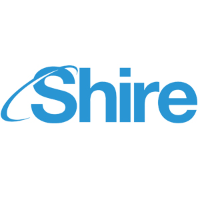Shire plc (LON:SHP), the leading global biotechnology company focused on rare diseases, has today announced the results from a retrospective review of more than 2,500 patient records with metastatic adenocarcinoma of the pancreas from nine countries. The results – presented on 20 June at the 20th ESMO World Congress on Gastrointestinal Cancer 2018 in Barcelona – showed variation across Europe in the symptoms reported at initial diagnosis, and in treatment decisions made in the first-line and second-line metastatic settings. The research suggests that enhanced recognition of symptoms and a standardized treatment approach, especially in the second-line setting, may help improve diagnosis, patient care and outcomes.
Floris de Jong, Ph.D., Global Medical Franchise Lead Solid Tumors at Shire Pharmaceuticals comments “Pancreatic adenocarcinoma is typically diagnosed late in the course of the disease, when outcomes are generally poor. These analyses from patient records and NAPOLI-1 collectively provide important new insights for the diagnosis and treatment of patients with this difficult-to-treat cancer. Specifically, the results of the retrospective review indicate that enhanced awareness of, and attention to symptoms both by health care providers and the public at large may help improve mPAC diagnosis, care and outcomes.”
Researchers also presented new data from four subgroups of the global phase III NAPOLI-1 study in an oral session. These subgroups included: the presence of metabolism and nutrition disorders at baseline, including diabetes mellitus and decreased appetite; the location of the primary tumour site; the presence of a biliary stent at baseline and response to prior therapy.
The search for innovative new therapies in pancreatic cancer remains a serious unmet need. Relatively little progress has been made in preventing, detecting and treating the disease relative to other leading cancer killers, and survival rates for pancreatic cancer remain one of the lowest among other types of cancer.
Teresa Macarulla Mercadé, M.D., Ph.D., Clinical Investigator, Gastrointestinal Tumor Program, Vall d’Hebrón Institute of Oncology, Barcelona comments “While first-line treatments are approved for patients with pancreatic adenocarcinoma, disease progression after initial therapy is inevitable and patients with this disease have a poor prognosis and low survival rate. To further our understanding of the use of nal-IRI in the treatment of mPDAC, we conducted four separate NAPOLI-1 subgroup analyses investigating the effect of selected baseline parameters. These analyses demonstrated that a consistent treatment benefit was observed in patients treated with nal-IRI in combination with 5-FU/LV across the subgroups tested.”




































